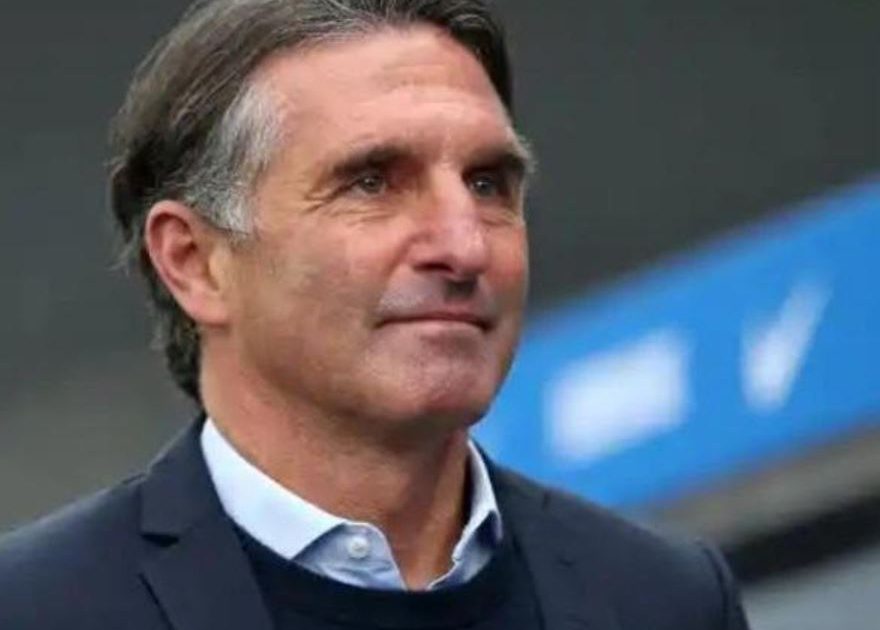
The appointment of Bruno Labbadia as the new manager of Nigeria’s Senior Men’s National Team, the Super Eagles, has put an end to weeks of speculation and uncertainty following the sudden departure of former coach Finidi George.
George’s reign came to an abrupt end shortly after taking over as the head coach.
During his brief tenure, the Super Eagles faced challenges in the early stages of the 2026 World Cup qualifiers, including a disappointing home draw against South Africa and an away loss to Benin Republic, led by former Eagles coach Gernot Rohr.
Following George’s departure, the Nigeria Football Federation embarked on a search for a new head coach.
Several prominent names were rumored to be in the running for the position, such as Swedish coach Janne Anderson, two-time AFCON winner Herve Renard, and Englishman Steve McClaren.
However, in a surprising move, Labbadia was ultimately selected to lead the team.
Now, Labbadia faces the challenging task of preparing the Super Eagles for their upcoming assignments, with less than three weeks to get the team ready for crucial Africa Cup of Nations qualifiers.
Nigeria is scheduled to play against Benin Republic on September 7, followed by a match against Rwanda three days later.
The Sixth German to Lead the Super Eagles
Labbadia’s appointment continues Nigeria’s tradition of having German coaches. The first German to manage the Super Eagles was Karl-Heinz Marotzke, who took charge in 1970 and made a brief return in 1974. Since then, Nigeria has seen the likes of Gottlieb Göller (1981), Manfred Höner (1988-1989), Berti Vogts (2007-2008), and most recently, Gernot Rohr (2016-2021) at the helm.
Among these, only Höner and Rohr achieved some success. Höner led the Eagles to a runner-up finish at the 1988 AFCON, while Rohr guided Nigeria to the 2018 FIFA World Cup and secured a bronze medal at the 2019 AFCON.
First Venture into National Team Management
Despite his extensive experience in club football since 2003, this is Labbadia’s first venture into national team management and his initial role outside of Germany.
Throughout 487 matches across eight different clubs, Labbadia has an overall win rate of 42%, comprising 214 wins, 103 draws, and 170 losses.
His most recent position, a second stint with Stuttgart, came to an end after the team dropped to the bottom of the league standings.
A History of Short-term Roles
While the specifics of Labbadia’s contract with the NFF remain undisclosed, his career trajectory suggests that his tenure could be short-lived.
His lengthiest stint as a manager was at Darmstadt 98, where he coached from 2003 to 2006, guiding the team to promotion in his inaugural season.
Despite a contract extension at Stuttgart, he was relieved of his duties three years later, concluding his time there with 50 wins, 24 draws, and 45 losses.
Throughout subsequent roles at Greuther Fürth, Bayer Leverkusen, Hamburger SV, VfL Wolfsburg, and Hertha BSC, Labbadia’s average tenure lasted just one year, including second stints at Stuttgart and Hamburger.
